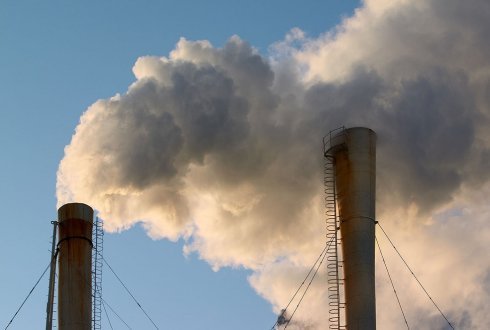climate change
Causes of climate change
There is nothing new about climate change. For hundreds of millions of years the Earth’s temperature has been influenced by continental shifts, which have triggered volcanic eruptions among other things. Sometimes these shifts released large volumes of CO2 which heated up the Earth. They also caused young rocks to rise to the surface, which chemically bound CO2. As a result, CO2 was dispelled from the atmosphere in the longer term.
Today, natural phenomena still make a deep impression on the climate. Take, for example, El Niño, which occurs at intervals of three to seven years. When the trade winds ease, the warm water from the Western Pacific (Indonesia, Philippines) moves east and causes a rise in sea temperature in an area west of Peru. This occurrence creates worldwide deviations in cloud patterns, precipitation and temperature.
So, the causes of climate change are many and varied. And the effects on our climate system are complex.
Influence of humans
Humans have been influencing the climate since the start of the Industrial Revolution. Since then, the average world temperature has risen by approximately 0.8 degrees Celsius. In North-West Europe (including the Netherlands) the average temperature has risen by 1.5 degrees. The sea level has risen by around twenty centimetres and most of the glaciers have shrunk dramatically.
Up to 1950 the influence of nature was more important than human influence. After that, the pattern in the average world temperature can only be explained by factoring in the human influence.
Even so, a slight decline in temperature did appear from the mid-1940s to the mid-1970s. It was linked to a dramatic increase in cooling aerosols from the post-war industrialisation in the western world. It was also caused by a mild decline in solar activity and some major volcanic eruptions in the second half of this period.
According to the latest IPCC report, it is more than likely (more than 90 per cent probability) that most of the global warming in recent decades is attributable to the observed increase in greenhouse gases.
CO2 and climate change
The most well-known and the most important greenhouse gas is CO2. The concentration of CO2 in the atmosphere is subject to variation even without human intervention. The carbon cycle causes an exchange of CO2 between the biosphere and the oceans on the one hand and the atmosphere on the other.
Vast amounts of CO2 are also released by the burning of fossil fuels. There is incontrovertible evidence that the CO2 concentration in the air has never been so high in 800,000 years (probably even 60 million years) as it is now. The trend suggests that CO2 emissions will continue to rise globally, although the economic crisis did prevent a rise in 2009. The Netherlands (per head of population) is high on the list of CO2 emitters in the world.
Hi! I am a robot. I just upvoted you! I found similar content that readers might be interested in:
https://www.wur.nl/en/show/Causes-of-climate-change.htm
Go here https://steemit.com/@a-a-a to get your post resteemed to over 72,000 followers.
Congratulations @stanley1988! You received a personal award!
You can view your badges on your Steem Board and compare to others on the Steem Ranking
Vote for @Steemitboard as a witness to get one more award and increased upvotes!